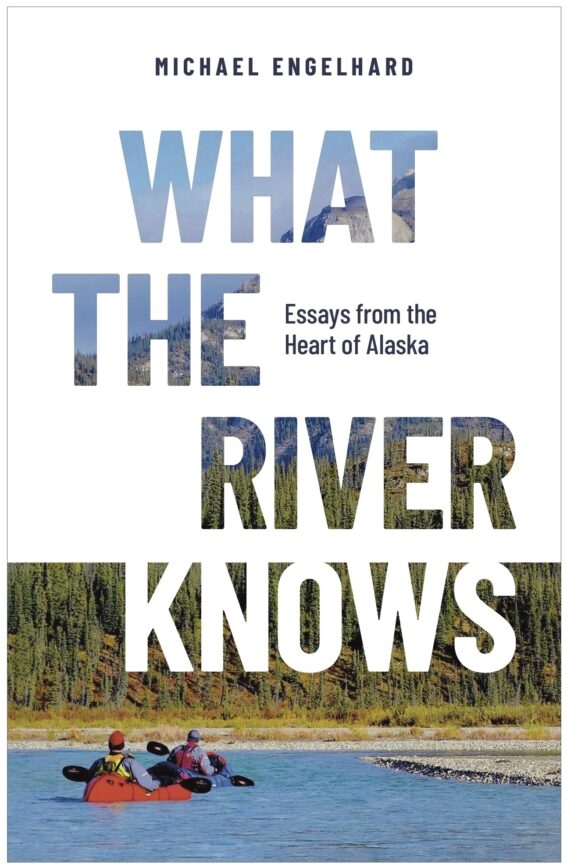“The second I step up onto the tundra bench I realize my mistake. I forgot to shout, ‘Hey bear!’ like I normally do when beaching the raft, to avoid nasty surprises.
Right now, this slip of attention could get me killed. Not 20 yards away, a grizzly stands up in the grass, fixing me in the crossfire of its stare. Next to it, two fur balls, jolly as piglets: cubs. It’s a worst-case scenario come to life.
What a mess. I have two clients, brain surgeons, on a beach upstream, one wet and fiercely shivering—luckily, he was able to swim ashore after flipping in this no-brainer rapid, a boulder garden. I have his paddle, which I fished from the current after chasing it in the ‘mother ship,’ the big baggage raft. I don’t have his $1,200 packraft; it lies wedged into rocks on the Hulahula River’s far side.” — Excerpt from What the River Knows
Edward Abbey, who never much liked Alaska, called it “our biggest, buggiest, boggiest state.” To others, it has been a cure for despair. When Michael Engelhard moved to Fairbanks more than three decades ago, he was a cheechako, a subarctic tenderfoot. Gathering skills and experiences the hard way, he attained “Sourdough” status while realizing there would always be more to learn, see, and do in the land of midnight sun and auroras.
En route, Engelhard suffered frostbite, stubborn yaks, grizzly charges, trophy hunters, cold-water immersion, heartbreak, incontinent raptors, one pesky squirrel, and honeymooners from abroad. He tried to rescue a raven and explored Arctic dunes and a glacier’s blue heart, and his own as he mingled with caribou on their epic journeys.
This collection opens with an essay about the highest point in the state and finishes with one about one of its lowest, at the continent’s northern edge. The writings in between span thirty-three years, the most formative decades of this author’s life. Rivers have been a constant in them, the sinews connecting highpoints and low points, outlier and main events, as they do Alaska’s elevation extremes.
“More than mere tales of adventure, [Engelhard’s] book immerses readers in the sounds, scents, and cultures of our state, all through the eyes of an attentive guide and naturalist who also knows his history. His easy but eloquent writing slides us in the cockpit of a sea kayak or hunkers us in the cramped confines of a stormbound tent in the Alaska Range.” —ALASKA magazine
“Bound to become a new classic of the outdoors. Sure to be cherished by all who love Alaska and who long for wilderness.” —BILL STREEVER, bestselling author of Cold
Trained as an anthropologist, with a degree from the University of Alaska, and having worked for twenty-five years as an outdoor educator and wilderness guide, Michael Engelhard lives in a cabin on the outskirts of Fairbanks among moose, lynxes, and porcupines. He is the author, most recently, of the Grand Canyon essay collection No Walk in the Park, and of the memoir Arctic Traverse.

